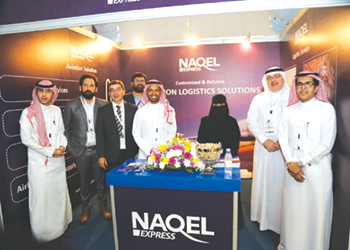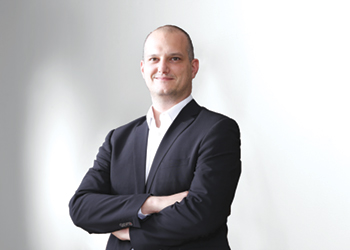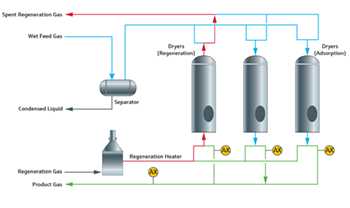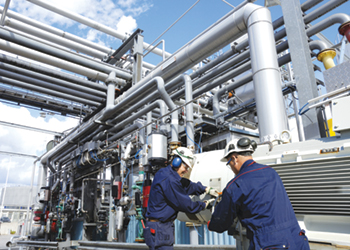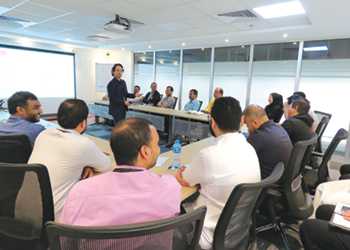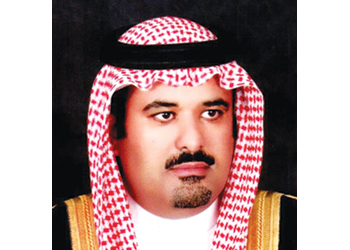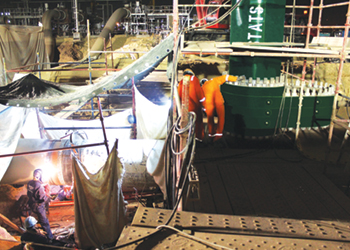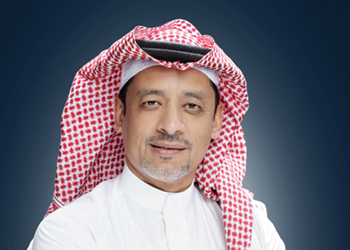
 Al Bokhari ... on a mission
Al Bokhari ... on a mission
Since 2008, SPSP graduated more than 6,500 trainees in 12 specialities, who are currently working for more than 100 firms in the oil and gas field. It has supported most of the energy sector companies in meeting their business objectives
Saudi Petroleum Services Polytechnic (SPSP), a leading institution that meets the needs of the petroleum services industry and supports Saudisation, plans to establish a certification hub in Saudi Arabia.
'We are continuously diversifying to ensure that we cover all critical skills and we are supporting the energy sector companies to sustain their operations. We have introduced engineering training and certification for the first time; the Saudi Council of Engineers is our strategic partner, so are Saudi Aramco domestic Joint Ventures companies,' says SPSP CEO Bassam A Al Bokhari.
Founded in 2008 by the Ministry of Petroleum and Mineral Resources, the Technical and Vocational Training Corporation (TVTC), Saudi Arabian Chevron, Saudi Aramco and Aramco Gulf Operations with the Human Resources Development Fund (HRDF) as the main supporter, SPSP considers itself as a 'primary cornerstone' to support the energy and industrial sectors achieve their objectives. SPSP started with one institute in 2008; currently, there are three.
'We have aligned our strategy roadmap with the Saudi 2030 Vision. We will continue our mission to graduate qualified young Saudis, and we will ensure they have dignified roles after graduation,' says Al Bokhari.
Since 2008, SPSP graduated more than 6,500 trainees in 12 specialities who are currently working for more than 100 companies in the oil and gas field, he observes. SPSP has supported most of the energy sector companies in meeting their business objectives, sustaining their operations and ensuring Saudisation. 'In other words, we proudly enabled these young Saudis attain self-actualisation and contribute to the nation building process,' notes Al Bokhari adding that occasionally, even after the trainees graduate, SPSP does a follow-up inquiring about their wellbeing, development and retainability.
SPSP sets its operating plan, updates its business plan every year and gets it approved by the Board of Trustees (BOT). 'We have embarked on a Transformation Plan at the beginning of this year with a roadmap for expansion and continued excellence with a set strategy and milestones.'
'We have set very ambitious targets that are aligned with the Saudi 2030 Vision to increase Saudisation and provide a high-level technical quality workforce. It is very challenging, but so far, we are meeting our objectives,' he says.
SPSP offers a number of industry-specific training programmes that are tailored to the needs of the petroleum service companies. SPSP programmes fall into one of the two main categories - Maintenance & Operations or Construction & Drilling. Also, it is offering training and certification for engineers along with a suite of industry related short courses.
Al Bokhari points out that SPSP follows a very structured methodology in selecting trainees. Applications for admission reach over 20,000 yearly, and after that SPSP applies a very structured process to select the best fit as per sponsors’ requirements.
Regarding faculty, he says SPSP’s resources are very well selected and some of them have been with it since inception. This is an advantage for SPSP. The polytechnic also follows a very rigorous methodology while selecting the right resources. Moreover, it has established a succession planning to ensure that Saudis occupy these critical positions.
Several leading national and international petroleum services companies support SPSP and many are represented in SPSP’s BOT. BOT governs SPSP and members of the board represent SPSP founders and major stakeholders. BOT contributed a big share in this success through their effective collaboration and continuous feedback, he notes.
The institute’s key supporters are its founders, in addition to HRDF. 'We have a unique set up as we are the only institute which has more than one strategic supporting founder. HRDF is also part of BOT and has always been a keen supporter to ensure this success.'
Moreover, SPSP earned seven international accreditations which put them in the top rank of the Energy Institutes. SPSP programmes and training centres are accredited by the Accrediting Council for Continuing Education & Training (ACCET), International Association of Drilling Contractors (IADC), the Institution of Occupational Safety and Health (IOSH), City and Guilds, PAA/VQ-SET, the Lifting Equipment Engineers Association (LEEA) and the National Safety Council (NSC).
 |
Skills training in progress ... Top (left to right) Hussain Alhakkeem, Hussain Ramadan and Khaled Alhuzaeem, bottom (left to right) Mohammed Fardan, Mohammed Mansour and Mohammed Sayaf Alshahrani |
As SPSP is in a continuous improvement path, it is targeting even more accreditations in covering HSE, rigging, logistics, and services before end of this year. This is to better position itself for more business opportunities towards fulfilling its Transformation Plan objectives.
Corporate Social Responsibility is yet another aspect of SPSP’s interests, notably Taziz, a volunteering programme to give English and Math classes to 200 11th and 12th grade students from charity organisations in the evening during the school year in preparation for college education. This is organised by SPSP’s voluntary CSR ‘OneHand’ team. It is one of the sustainability programmes to improve qualifications at an early stage of a student’s career. SPSP focuses on qualifications and building strong personalities, the root causes for success.
Bahjat Zayed, the Business Development and Relations Director, adds that SPSP is formulating a new marketing strategy with a business development plan aimed at a further outreach through a concerted media and public relations focus, marketing collaboration with major sponsoring companies represented on BOT and through the active participation in domestic and Arabian Gulf area professional industry conferences and exhibitions.
In his closing remarks, Al Bokhari says: 'SPSP will be globally recognised as best-in-class Institute, and will introduce a sustainability programme to achieve highest operational excellence standards.'






















































































